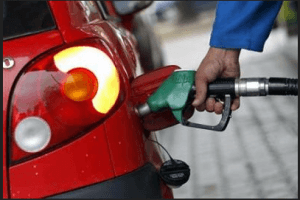IES proposes three-prong approach for stable, affordable fuel prices
 The Institute for Energy Security (IES) has proposed a three-prong approach to ensure stable and affordable petroleum prices in Ghana.
The Institute for Energy Security (IES) has proposed a three-prong approach to ensure stable and affordable petroleum prices in Ghana.
This include having a strong currency, a viable domestic oil refinery to reduce fuel importation, and a fine balance between the downstream and upstream petroleum sectors.
Nana Amoasi VII, Executive Director, IES, made this proposal in an interview with the Ghana News Agency on Friday, April 5.
This comes on the heels of fuel prices in Ghana, exceeding GHS14 per litre, the highest in about 14 months. The last time fuel prices reached such high was in February 2023, where it hit GHS15.
“A more sustainable approach is to have a very strong Cedi, make use of our indigenous crude oil, and build a synergy between the upstream and downstream petroleum sectors.” Nana Amoasi VII said.
He explained that the country had seen a 14-month long high fuel prices because, and it is unlikely to see any drastic reduction between now (April) to December 2024, noting that what was likely to happen would be some stability.
“Between February 2023 and now, we still have been dependent on oil export; our refinery capacity continues to be low since the coming of Sentuo, which is also having erratic production due to power outages, exposing us to international market risks,” he said.
He also said: “Our cedi stabilised for a while, however, over the last month, there’s been a consistent decline in the value of the cedi against the importing currency – the Dollar, leading to a forex exposure, which is also working against us.”
The IES Executive Director noted that the Price Stabilisation and Recovery Levy on petroleum products had also not been effective in stabilising fuel prices, hence, the need to have concrete works in solving the challenges in the sector.
He said that doing so would help in stabilising prices of petroleum products in the country, particularly, petrol and diesel, which are now selling on an average of almost GHS15.
“Let’s work at bringing back our Tema Oil Refinery (TOR) and ensure that we’re refining some of our crude domestically, and that could give us some savings from the forex,” he said.
Nana Amoasi VII stated that fuel importation brought extra cost, but when the upstream and downstream petroleum sectors were well connected, the taxes would be negligible, and the cost of production would be cheaper.
“If the Sentuo Oil Refinery is working efficiently, we’ll get 45,000 barrels, and if we bring back TOR, we will get another 45,000 barrels. With this, we’ll be able to meet more than 90 per cent of our domestic demand of petroleum,” he said.
Source: GNA
